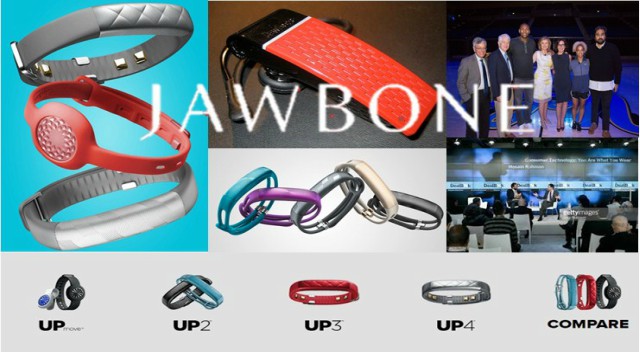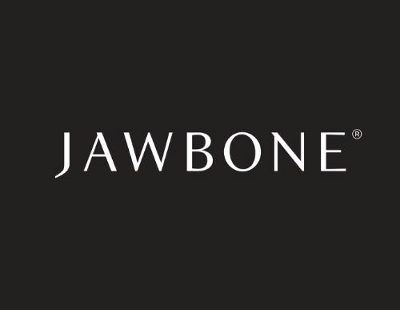
Unicorns 103/229 – Jawbone
Jawbone.
Founder/s: Alexander Asseily, Hosain Rahman
Key people:Hosain Rahman (Founder & Chief Executive Officer), Alexander Asseily (Founder & Chairman), Yves Behar (Chief Creative Officer), Randy Knaflic (VP People Operations), Bandar Antabi (Vice President) and Benoit Simeray (VP International Sales)
Number of employees: 251 – 500
For more than a decade, Jawbone has developed products and services for the mobile lifestyle unparalleled in their innovation, ease-of-use and sophistication of design.
The company is the creator of the award-winning and best-selling premium ICON Bluetooth headset; the inventor of NoiseAssassin® technology, the world’s first and only military-grade noise eliminating technology; JAMBOX, the first intelligent wireless speaker and speakerphone; as well as THOUGHTS, a free mobile service that allows users to utilize their voice in a new way.
A 2010 IDSA Design of the Decade winner, Jawbone is committed to delivering innovative products that improve the mobile lifestyle through ever-changing software and wearability.
Jawbone is privately-held and headquartered in San Francisco.
History
2012 to 2013
By February 2012, Jawbone was valued at an estimated $1.5 billion. In May 2012, Jawbone introduced Big Jambox, and in August 2012, custom color combinations for Jambox.
In September 2012, with the iPhone 5, Apple introduced a proprietary Lightning connector, incompatible with previous generations of the iPhone. This prompted a shift from plug-in audio docks to wireless speakers that supported Bluetooth and AirPlay. Jawbone had an advertising campaign and released a YouTube video showcasing exploding speakers with outdated audio docks.
In November 2012, Jawbone released a new UP and a redesigned iOS app for UP. Since original UP users had been refunded (even if they kept the device), they did not receive a new UP. Jawbone also used the intervening time to add new features to its software, making UP a more powerful life-tracking device.
In February 2013, Jawbone completed an acquisition of design firm Visere and MassiveHealth, best known for its crowd-sourced food app, The Eatery.
In March 2013, Jawbone announced that UP would be available internationally. The company also launched of the Android app for UP. However, this app was not compatible with most Android tablets, such as the Nexus 7. A month later Jawbone announced software to allow developers to access Jawbone UP data and integrate their apps.
Also in April 2013, Jawbone announced its acquisition of BodyMedia, a maker of wearable health tracking devices.
In May 2013 Jawbone added Marissa Mayer, CEO of Yahoo!, and Robert Wiesenthal, COO of Warner Music Group, to its board of directors. Mindy Mount (from Microsoft) became president of the company at the same time.
Also in May 2013, Jawbone announced customer colors for the Big Jambox.
In September 2013, Jawbone announced the Mini Jambox, and a water-resistant leather case for it.
In 2012, CEO and founder Rahman was named to Fortune magazine’s 40 Under 40. The following year, he was among Fast Company magazine’s most creative people and Vanity Fair magazine’s New Establishment and was recognized as one of TIME 100’s most influential people of 2014. He talked at TED, DLD, LeWeb, SXSW and the D:Mobile Conference.
In September 2013, Jawbone raised $93 million in debt financing from Silver Lake, Fortress Investment Group, J.P. Morgan and Wells Fargo, plus $20 million in equity funding from previous investors.
2014 to present
In February 2014, a round of investment estimated at $250 million led by the firm of Suhail Rizvi was reported. Mindy Mount left as president about the same time, after less than a year. In January 2015 in advance of the BlackRock deal, Alexander Asseily resigned as Chairman of the company and from its Board of Directors.
By early 2015, a lawsuit from manufacturer Flextronics over $20 million of payment disagreements was reportedly settled. In May 2015, Jawbone filed a lawsuit against Fitbit in California State Court, accusing Fitbit of hiring away employees who took confidential and proprietary information along with them. In April, 2015, the company closed $300 million in debt financing from investment management firm BlackRock and ended previous loan agreements.
After a market research firm estimated Jawbone had only 2.8% of the market for fitness trackers, lay-offs were reported in November 2015. In April, 2016, the United States International Trade Commission sided with Fitbit in a patent dispute. Another round of rulings in August 2016 was mixed, but analysts said “the tide has turned in favor of Fitbit”. According to a report by Business Insider, as of September 2016, Jawbone has almost no inventory left and has struggled to pay one of its customer service agencies.
In early 2017, it was rumored that Jawbone will stop manufacturing and distributing consumer products. Jawbone plans to shift focus from consumer to medical products. Jawbone will be distributing professional health products and “accompanying services” to clinicians and health care providers. This has been “confirmed” by an extremely reputable tech publication, with a formal announcement likely happening in the first quarter of 2017.

